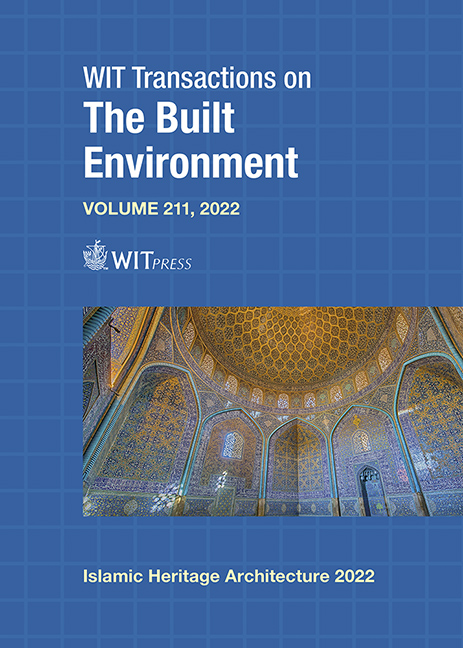CONSERVATION OF URBAN HERITAGE IN HISTORICAL CENTRES OF CONTEMPORARY CITIES
Price
Free (open access)
Transaction
Volume
211
Pages
13
Page Range
3 - 15
Published
2022
Paper DOI
10.2495/IHA220011
Copyright
Author(s)
KABILA FARIS HMOOD
Abstract
Cities with no memories certainly miss the joy of presenting the past and, as a result, struggle to dream of building their future. The aim of this research stems from the importance of urban and architectural heritage in historic districts of cities in the present and future. This importance leads to sustainable development, which satisfies the needs of the present and protects future rights. Also, it highlights the importance of studying “urban conservation”. Moreover, there is an increasing population growth which causes expansion in contemporary cities; the reason behind this is the rapid expansion of modern urban, commercial and residential land use towards the historical centre of cities. The findings of this research confirm that orientation, which is accentuated in the present, is necessary to link the conservation of the old and planning for the contemporary projects in a unified architectural and constructional policy. The comparative research methodology uses an analytical approach through many successful and unsuccessful experiments and attempts to answer several questions, such as: What is urban conservation? How do cities of historical depth deal with modern planning? What should we do as we face the rapid increase in modern needs in the present? What are the reasons behind the loss of urban heritage? Why does urban heritage decrease, particularly in Arab cities? Finally, the research reaches its conclusions and possible recommendations. This paper shows that preventing the new residential expansion or any other modern function in the historical centre is a must unless done to create a balance between the old and contemporary through rehabilitating and investing in the heritage.
Keywords
policies of urban renewal, rehabilitation, historical cities, urban and architectural heritage, urban conservation, urban fabric




